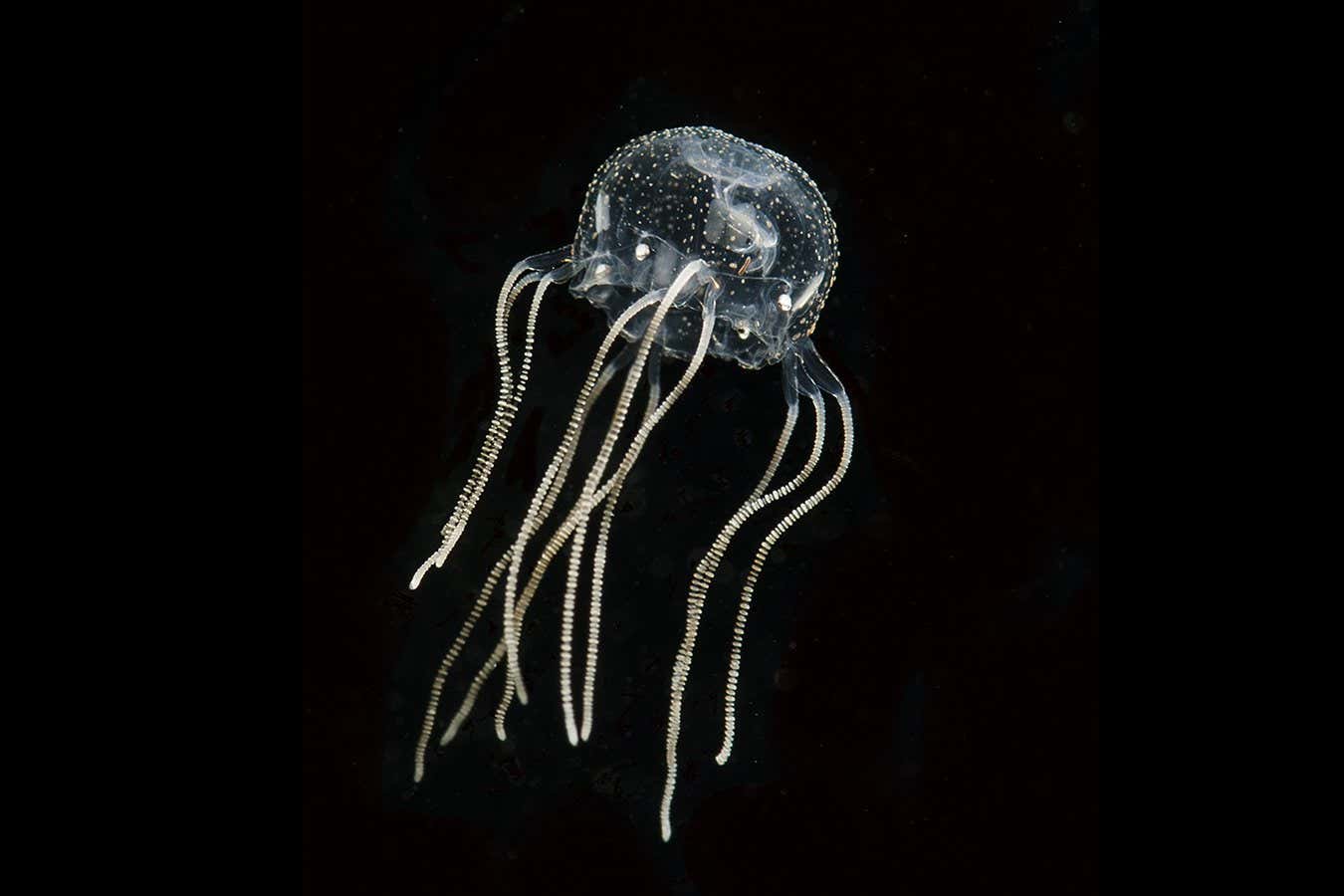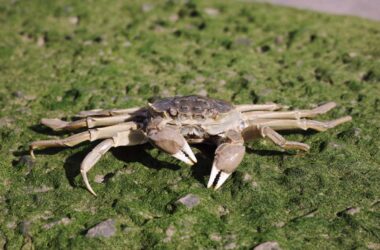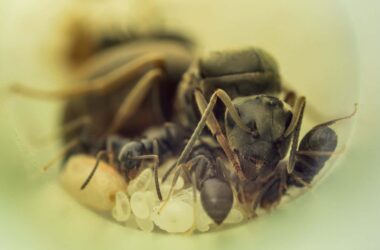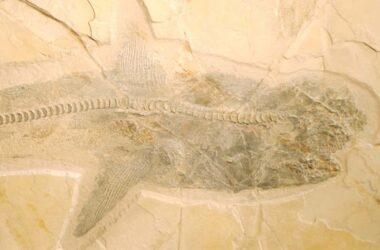A Caribbean box jellyfish
Jan Bielecki
Caribbean box jellyfish have been found to learn from experience, even though they lack a central brain. This discovery provides insights into the evolution and mechanisms of learning.
Traditionally, it was believed that learning from experience and adapting behavior was limited to animals with relatively large brains, such as mice, birds, and primates. However, some studies suggested that simpler organisms may also possess this ability. To investigate this further, Jan Bielecki and his team at Kiel University in Germany studied learning in jellyfish, which represent an early stage in animal evolution.
The researchers created an experimental environment that mimicked the natural habitat of Caribbean box jellyfish, which is rich in mangroves. They placed the jellyfish in a tank painted with white and grey stripes to resemble mangrove roots. Initially, the jellyfish would bump into the tank walls due to an optical illusion caused by the grey stripes appearing further away than they actually were. However, after a session in the striped tank, the jellyfish began pivoting to avoid the walls, indicating that they had learned from the collisions and modified their behavior. By the end of the experiment, the jellyfish reduced their crashes by half and increased successful swerves fourfold.
Bielecki was surprised by how quickly the jellyfish learned to avoid the tank walls, as it was previously believed that a highly developed nervous system was necessary for learning. He suggests that learning in jellyfish may occur in their four visual sensory organs, called rhopalium, which are distributed throughout their bodies and contain a total of 24 eye-like lenses that sense light. These lenses help guide the jellyfish’s movements.
The study demonstrates that the nervous systems of jellyfish can perform remarkable functions without a traditional brain. Simon Sprecher from the University of Fribourg, Switzerland, who was not involved in the research, highlights the significance of this finding.








